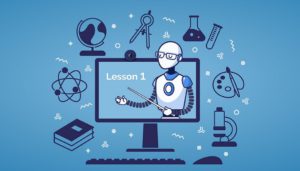AI startups have grown in popularity over the last few years. This relatively new technology has applications in a wide range of professions and niches across the world. In addition, Tractica, a market research organization, predicted in 2020 that the worldwide AI software industry will be valued $126 billion by 2025.
In this post, we’ll provide you some AI startup suggestions to think about. We’ll show you how AI and machine learning are now being utilized and will be used in the near future.
1. AI Healthcare startups:

The concepts of AI businesses in the healthcare field are thriving. Healthcare AI firms using cutting-edge technology can assist doctors in diagnosing and determining when patients are failing.
In this manner, medical intervention can take place before the patient requires hospitalization. This indicates that the average human life expectancy will rise. Some illnesses and ailments that were formerly lethal are no longer so. If you can support the appropriate diagnosis AI startup, it may be a genuine moneymaker for you.
AI startup firms in the healthcare industry may help patients and save money. Human lives can be saved by machine learning in settings such as hospitals, clinics, and private medical offices.
Human error or incorrect diagnosis will be less common in areas such as cancer detection. There are several additional areas of healthcare where AI will transform the business. Well-conceived medical AI firms will undoubtedly be the way of the future.
2. AI driven IT services, security, and cybersecurity startups:
Another option is to launch an AI business for security technologies. At the start of the new decade, many firms are allocating financial resources to AI and machine learning startups for IT solutions, network infrastructure, and security.
On AI platforms, for example, you may create conversational interfaces to power voice assistants and next-generation talking applications. AI and machine learning may also be integrated into hyper-converged systems. Companies of all sizes are implementing new IT services and security that can balance the diverse demands of computer systems.
Anomalies that signal a physical threat to a safe place can be detected automatically by AI. As a result, expensive data breaches will be reduced. AI and machine learning may be utilized in both cybersecurity and conventional security.
AI and machine learning systems can forecast where software vulnerabilities will develop with high accuracy. Companies may then shore up these flaws before hackers exploit them. Staying ahead of assaults will boost investor confidence, enabling for larger profit margins, quarterly estimates, IPOs, and so on.
Investment possibilities arise often during the AI startup cycle. Getting in on the ground floor of artificial intelligence and cybersecurity might pay off handsomely for you.
3. Energy and Cost saving startups:

Another thing to explore is AI startup investment to cut energy use and drilling operations costs.
There are always issues with the transportation of crude oil and natural gas, as well as the storage and refining of oil. Many industrial businesses have been investigating these ideas and putting in place the infrastructure to make them a reality.
AI applications can now learn and anticipate the future energy demand for specific mixing actions at granular levels. This brings up a plethora of possibilities for reducing waste and expenditures.
4. eLearning startups and AI-based learning apps:

Some of the top AI startups are also involved in eLearning. The concept of AI and ML apps has increased the power of written language. Humans cannot read as quickly as robots. They can’t build mental images or map facts as quickly as artificial creations.
As a result, ML and AI startups that can swiftly scan and interpret life science publications are particularly appealing to specific commercial organisations. Such applications can assist researchers in accelerating the identification of illness cures as well as the creation of novel pharmaceuticals and therapies.
As quickly as AI can learn, it can also teach people via individualized lesson plans. It has been proven that when people are educated based on their particular strengths and qualities, they learn better and quicker. Through testing, an AI programme can identify how to best build customized lesson plans that will allow individuals to hold several jobs while improving their skills.
5. AI logistics and supply startups
Supply and logistics businesses are among the top machine learning startups. Supply chain management is a growing sector, and rising fuel and transportation costs are among its major challenges.
Simultaneously, there is a higher desire for free delivery. As a result, businesses must find creative methods to save expenses while still satisfying client demand.
By monitoring new orders and integrating them with existing infrastructure, an AI-powered supply chain manager may control a company’s complete supply chain. It may also integrate third-party services, such as sophisticated route optimization using Opteron. This guarantees that everything from the warehouse to the customer is handled and optimized in order to boost efficiency and save expenses.
6. Fintech Startups:

Fintech-based AI hardware firms are on the rise. Fintech is a growing business that believes technology can enhance the accuracy and profitability of many financial transactions.
AI finance firms use artificial intelligence to streamline professional tasks such as automated data input and reporting. Accountants aren’t the only people in the financial field who may benefit from this new technology. The financial services sector as a whole is embracing automation.
Those in consultancy services and fraud detection, for example, might employ AI-built data models to better advise their clients. AI may also aid with transaction support and financial management. It is capable of comparing customer behavior by utilizing a huge network of previous data.
7. AI Marketing Startups:

Marketing is a sophisticated and difficult industry. It takes a lot of time and work to obtain expertise and knowledge. This enables marketers to provide their clients with the best possible return on investment.
There will always be lots of marketing firms bragging about their achievements. However, there are none that can genuinely promise the same outcomes time after again.
An AI-powered system can effectively assess marketing effectiveness by combining its knowledge over time with enhanced data. As a result, such a system might provide potential clients with a baseline performance guarantee. This would very certainly provide a huge competitive edge in the marketing industry.
8. AI based retail startups:
Within the retail business, AI may be employed for a variety of applications. Consider personalization in shopping applications. AI may be utilized as a virtual assistant to recommend things to customers based on their previous purchases.
Consumers routinely reveal what they want and enjoy, as well as how much they are ready to spend for them. Smart merchants may obtain this data from sources such as IoT devices and social media. They may also employ deep learning in conjunction with AI to make purchasing as simple and personalized as feasible.
9. AI entertainment startups:

Another area to look at is startup AI firms in the entertainment sector. Recreational AI-enabled applications with speech and picture recognition are becoming more common.
Machine learning, which may lead to the development of more sophisticated voice assistant features and chatbots, has also gained popularity. Voice AI businesses were formerly regarded unusual, but they are quickly becoming more ubiquitous.
Conversation interfaces powered by artificial intelligence can assist you in finding answers to your most important problems while you explore through entertainment applications. An app like this might assist customers with concierge services in hotels or give information about things for sale.
10. AI Home manager startups:

Home automation has grown in popularity during the last decade. Millions of smart home gadgets are used and purchased every day at this time.
The goal of AI-powered firms that offer home automation is to make house maintenance easier. Such firms want to make it possible for homeowners to control their property with a few buttons clicks within an app. They can do so regardless of whether they are at home or halfway over the world.
Home automation with AI has far larger potential than applications and programs that do not include it. A home management system powered by artificial intelligence has the potential to be for properties what self-driving capabilities is for regular automobiles.


